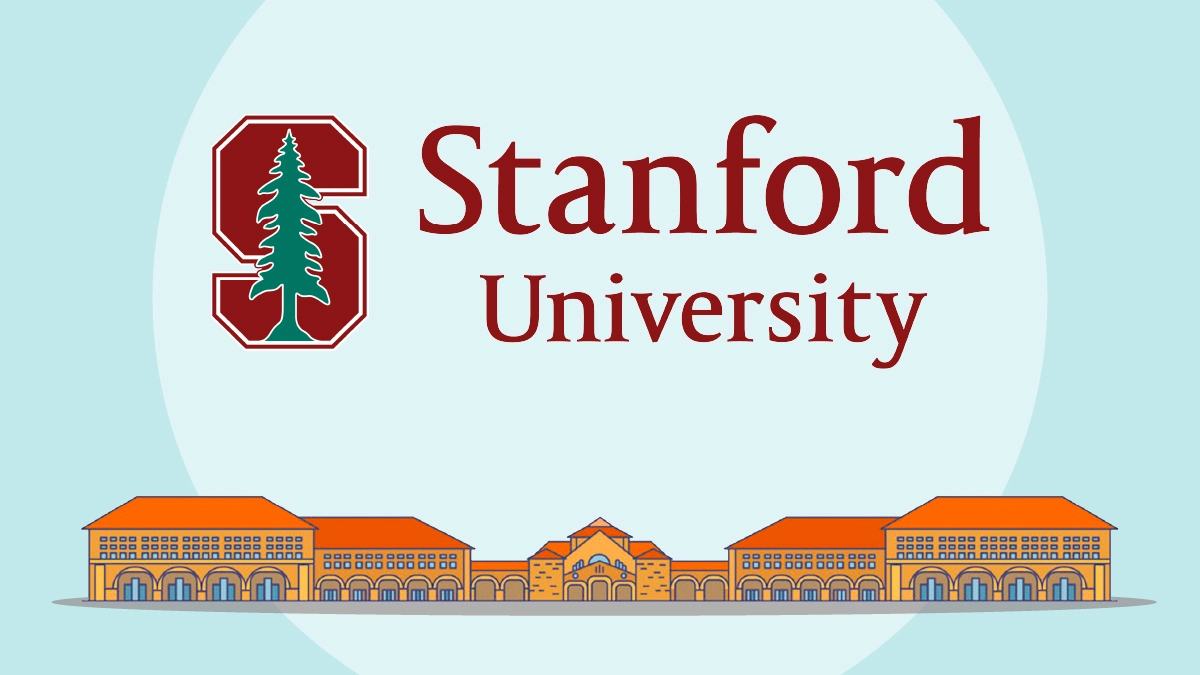https://www.wemakescholars.com/blog/mechanical-and-automobile-engineering
Breaking the Myth : Germany is only good for Mechanical and Automobile engineering
Admissions | Updated

What comes to your mind when I say Germany? Beer and cars. Right!? We all are aware about the finesse of German engineering. They build the best auto mobiles. Following this idea, students who plan to study auto mobile engineering or electronics tend to choose Germany as their sought after destination.
Today, I write breaking this myth, that Germany is only good for mechanical and auto-mobile engineering. For starters, I study Organic agriculture from University of Hohenheim and I chose Germany over London, Belgium and Netherlands. Germany is the third most famous destination today among the international students, following US and UK. German universities offer a variety of fields to choose from, including few of the most prestigious universities in Western Europe.
Germany also offers high quality of life, relatively low tuition fees, extensive support and scholarship schemes for international students and decent employment prospects. It hosts a variety of top universities with worldwide reputations engaged in cutting edge research. It is undoubtedly a cosmopolitan centre of learning. With its close proximity to the major cities such as London, Paris and Amsterdam, it is a hub for international networking. It is culturally rich and a forward-looking country.
Here we list down few universities in Germany who provide excellent education in the fields except auto mobile and mechanical engineering:
Technische Universität Munchen
It is one of the top universities in Europe. It is one of the first universities in Germany to be named a University of Excellence. TUM is the fifth best European technical university. Globally, TUM was placed 19th in the natural sciences and 30th in engineering. The courses offered are varied and they are in top 100 rank world-wide in the fields such as Architecture and Built environment , Chemical Engineering , Civil and Structural engineering , Computer Science and engineering, Electrical and Electronics , biology, agriculture and forestry, physics and astronomy.
See more: Students moving to Germany-Dos and don’ts
Humboldt Universität zu Berlin
The university was founded in Berlin in 1810, and the foundation concept of Wilhelm von Humboldt gave it the title "Mother of all modern universities". This concept envisaged a "Universitas litterarum" which would achieve a unity of teaching and research and provide students with an all-around humanist education. Humboldt-Universität zu Berlin was ranked 49th in the Times Higher Education (THE) World University Rankings, making it the 3rd highest-ranked university in Germany. They are ranked among the top 100 universities in the fields of English language and literature, history, linguistics, modern languages, philosophy, Computer science and engineering, agriculture and forestry,
Freie Universität Berlin
Located in the beautiful city of Berlin, Freie Universitat of Berlin is ranked among the best in Germany in Humanities. Freie Universität is also one of the largest universities in Germany, offering about 190 degree programs for 29,000 students - of whom 15 per cent come from other countries. In the Diverse Excellence ranking published by the Centre for Higher Education (CHE) in 2012 and 2013, the following subjects at Freie Universität were rated as particularly strong in research: English language and literature / North American studies, Psychology, Economics, Geography, Medicine and Mathematics.
See more: Crucial tips for earning and saving money while studying in Germany
Ludwig-Maximilians-Universität München (LMU)
Located in the heart of the city of Munich, it is one of the leading research universities in Europe. Ludwig-Maxmilians-Universität (LMU) München is one of Europe's leading research universities with over 500 years of tradition. The University of Munich has, particularly since the 19th century, been considered one of Germany's as well as one of Europe's most prestigious universities; with 34 Nobel laureates associated with the university, it ranks 13th worldwide by number of Nobel laureates. Building on its 500-year tradition of scholarship, LMU covers a broad spectrum of disciplines, ranging from the humanities and cultural studies through Law, Economics, and Social studies to Medicine and the Sciences.
For scholarship opportunities at Ludwig-Maximilians-Universität München (LMU) click here
Ruprecht- Karls-Universität Heidelberg
Heidelberg University has twelve faculties with a total of more than 30,000 students and a research and teaching staff of more than 5,000 scientists - among them 450 professors. Departments traditionally outstanding in natural sciences are predominantly at the Neuenheimer Feld campus. This spatial and academic closeness is highly attractive to researchers worldwide. Heidelberg is a lively center of the Rhine-Neckar metropolitan region and is marked by its high density of research-intensive industry and conglomeration of scientific research institutions. The internationally acclaimed faculties are English language and literature, History, Biology, Linguistics, Modern languages and Philosophy.
See more: How to ace DAAD WISE Internship
Eberhard Karls Universität Tubingen
It is one of the oldest universities in Europe.The University specializes in a number of innovative fields of research: Neuroscience, Clinical Imaging, Translational Immunology and Cancer Research, Microbiology and Infection Research, Molecular Biology of Plants, Environmental and Geoscience, Astro- and Elementary Particle Physics, Quantum Physics and Nanotechnology, Archaeology and Anthropology, Language and Cognition, Education and the Media. The University has partnerships with more than 150 educational institutions in 45 countries, particularly in North America, Asia and Latin America, as well as with all the countries in Europe.
Albert-Ludwigs-Universität Freiburg
The University of Freiburg, sometimes referred to with its full title, the Albert Ludwig University of Freiburg, is a public research university in Freiburg im Breisgau, Baden-Württemberg, Germany. The important disciplines in the universities are Humanities, Natural and Engineering sciences, Medicine, Law, Dentistry and Theology. The university is ranked 118th in world ranking for Arts and Humanities. The university boasts a variety of degree programs in any of more than 60 fields in 11 faculties. Not only is Albert-Ludwig University physically in the heart of the city of Freiburg - its students, professors, and staff are also an integral part of daily life in the Capital of the Black Forest. This is also one of the reasons why Freiburg has become such a popular place to study.
See more: Pros and Cons of studying in Europe
Goethe-Universität Frankfurt am Main
The university is named after Johann Wolfgang von Goethe, the Frankfurt-born polymath renowned for his exceptional contributions to literature, science, and philosophy..Students at Goethe benefit from studying and living in Frankfurt, the largest financial and trading centre in Europe. In recent years, Goethe University has maintained its reputation in the social sciences, but added important new facilities and research institutes in the natural sciences as well as law, history, languages, humanities, the arts, and economics. Its “clusters of excellence”, interdisciplinary research centres, have helped to sharpen the university’s academic profile, achieving outstanding results in diverse areas ranging from natural sciences (“Macromolecular Complexes”) to medicine (“Cardio-Pulmonray System”, a cluster of excellence in collaboration with the University of Giessen and the Max-Planck-Institute for Heart and Lung Research in Bad Nauheim, which conducts pioneering research for novel therapy of heart and lung diseases) and humanities and social sciences (“The Formation of Normative Orders”).
Universität Hamburg
Universität Hamburg is Germany's third-largest university and North Germany's largest educational institution.The six faculties of the University of Hamburg offer all the disciplines of a comprehensive university – from law, economics and social sciences to the humanities and cultural sciences, from the natural sciences and informatics to medicine. Universität Hamburg received authorization in 2007 for a Center of Excellence in climate research: the KlimaCampus Hamburg is an educational center for climate research and earth systems science. Besides "Climate, Earth, Environment," further particularly successful key research areas include: Matter and the Universe, the Structure and Function of Biomolecules, Neurosciences, Multilingualism, Governance, Culture and Technology as well as Heterogeneity and Education.
Georg-August-Universität Göttingen
Founded in 1737, the University of Göttingen is a research university of high international standing. The university is renowned not only for its remarkably diverse range of subjects but also for its research-led teaching and outstanding scientific environment, in which more than 40 Nobel laureates have lived, studied, taught and pursued their research. The University has a sound international reputation and was ranked number two in Germany, number 17 in Europe and number 67 in the world in 2015 by the Times Higher Education World University Ranking.University has an international reputation in natural sciences as well as in the arts.
See more:Frequently asked questions regarding study in Italy
Karlsruhe Institute of Technology
On October 01, 2009, the Karlsruhe Institute of Technology (KIT) was founded by a merger of Universität Karlsruhe (founded 1825) and Forschungszentrum Karlsruhe (founded 1956). The University offers a variety of studies: 40 different degree programs and countless international exchange program for students and instructors. KIT offers more than 80 modern degree programs: in engineering and economics, natural Science and informatics, mathematics and humanities.
TU Dortmund
Since its founding 47 years ago, TU Dortmund University has developed a special profile, encompassing 16 faculties ranging from science and engineering to social sciences and culture studies. The university currently has 32,800 students and 6,200 staff members, including 300 professors. The majors range from classic disciplines to cutting-edge subjects including unique programs in bio-engineering, spatial planning, statistics, journalism and the rehabilitation sciences. The Dortmund Model of Civil Engineering trains architects and civil engineers in joint projects.
See more: 5 basic points to consider if planning to study in Europe for free
Universität Hohenheim
University of Hohenheim is ranked number 1 in agricultural sciences. They have invested more than 14 million euros for research, and was classified by the DFG (German research foundation) as outstanding. On the second and third place is, TU Munich (with 10 million euros) and the University of Göttingen (with Euro 7.7 million). The origins of the university date back to the year 1818. King Wilhelm I. of Württemberg created an agricultural academy in Hohenheim. It was opened on 20. Nov. 1818.
There are many other universities which offer a cornucopia of different subjects to choose from. So all of those who wants to explore this land of opportunity, go ahead and you will not regret your decision.
Also, Most of these universities offer scholarships to foreign students based on various criteria. Do check out the scholarship opportunities in German universities using WeMakeScholars.com





Kindly login to comment and ask your questions about Scholarships & Education Loans